From Ordinary to Extraordinary (original) (raw)
English Heritage’s ‘Shout Out Loud’ (SOL) team partnered with the Young Archaeologists' Club to help fund an exciting opportunity for YACs from across the UK to design and deliver an archaeology themed project in their own community.

Project Overview
What is From Ordinary to Extraordinary?
The funded projects focused on exploring untold stories and narratives linked to a site/place chosen by their group.
This project also has a strong youth voice and co-creation angle. We have encouraged our YAC groups to work together, both Leaders and members where possible, to develop and deliver their project.
With the support of Young Producers from the Shout Out Loud project and our own YAC Young Leaders we awarded 8 projects funding to participate in From Ordinary to Extraordinary.
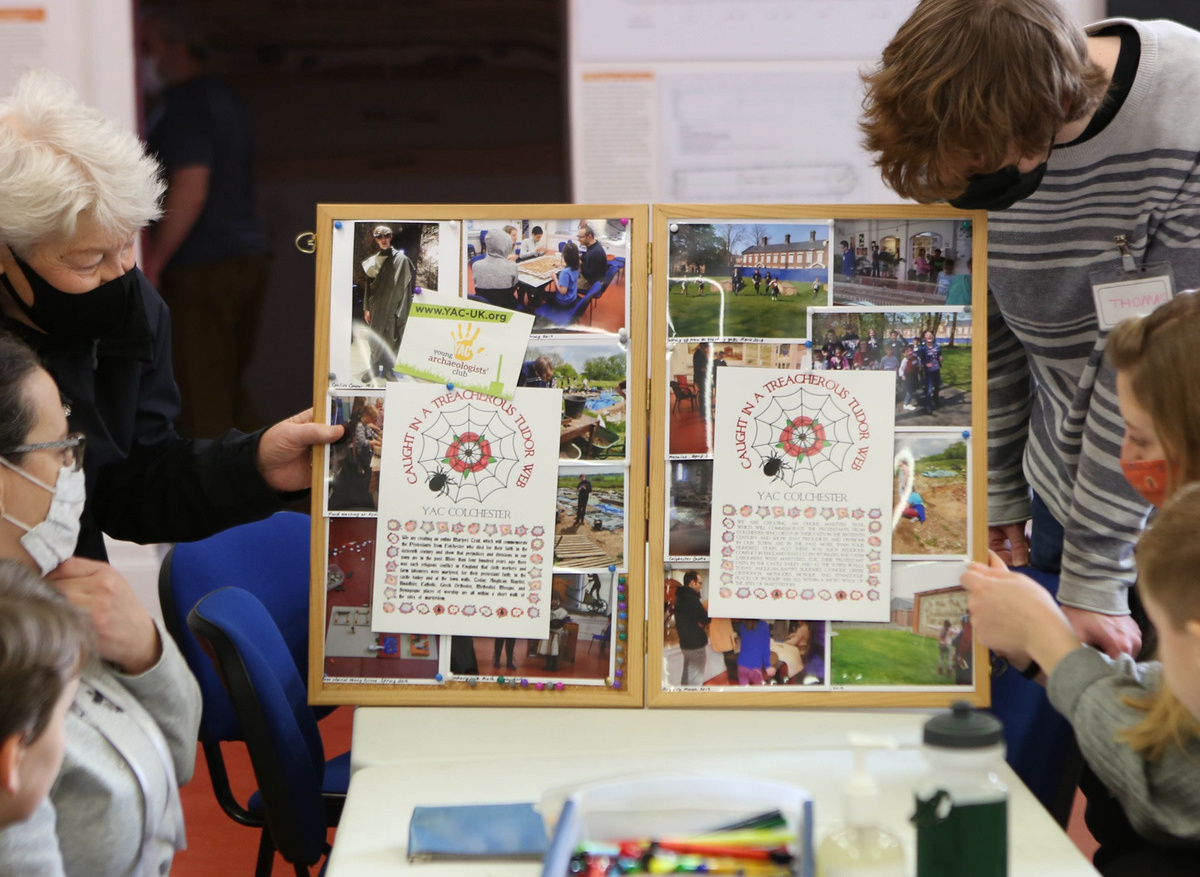
Colchester designing their trail logo

Torbay recording their project film

Mersey and Dee YAC exploring artefacts related to the transatlantic slave trade
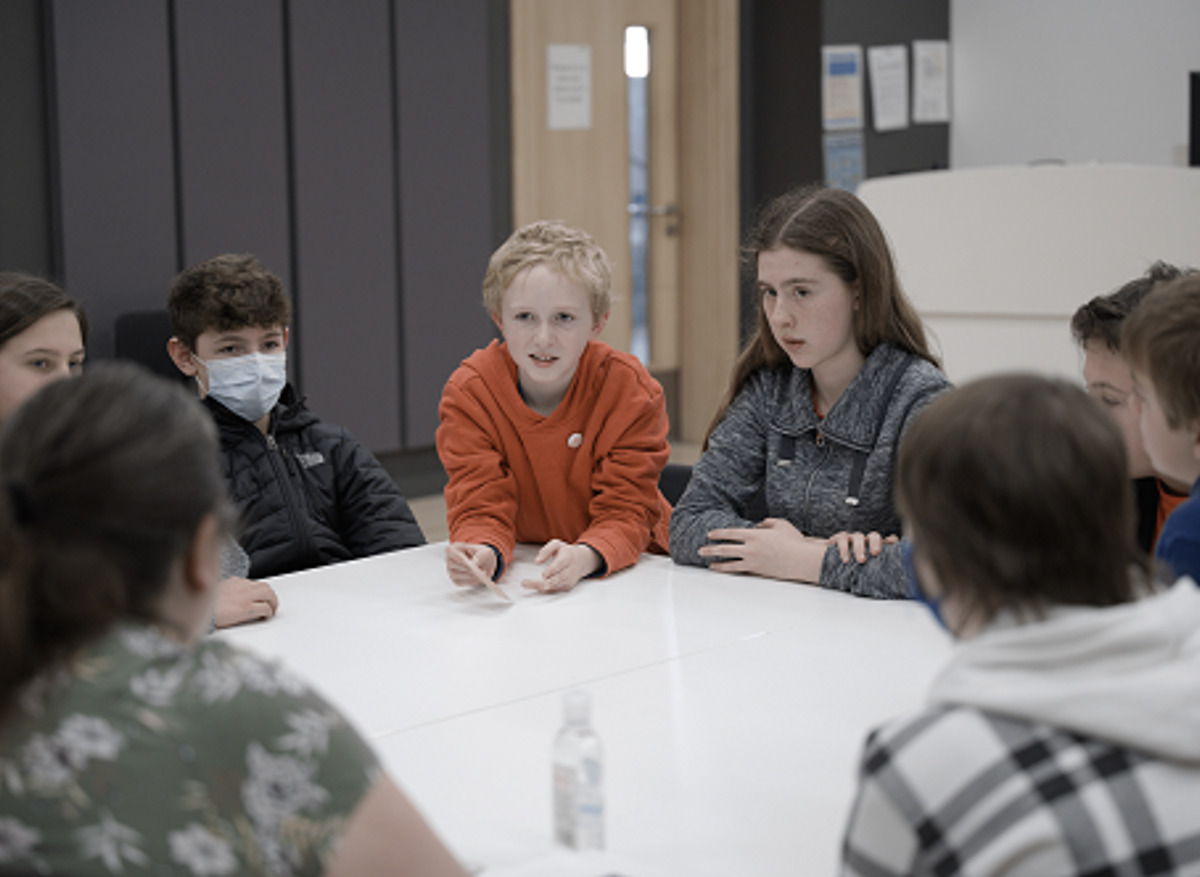
Worcestershire YAC planning session
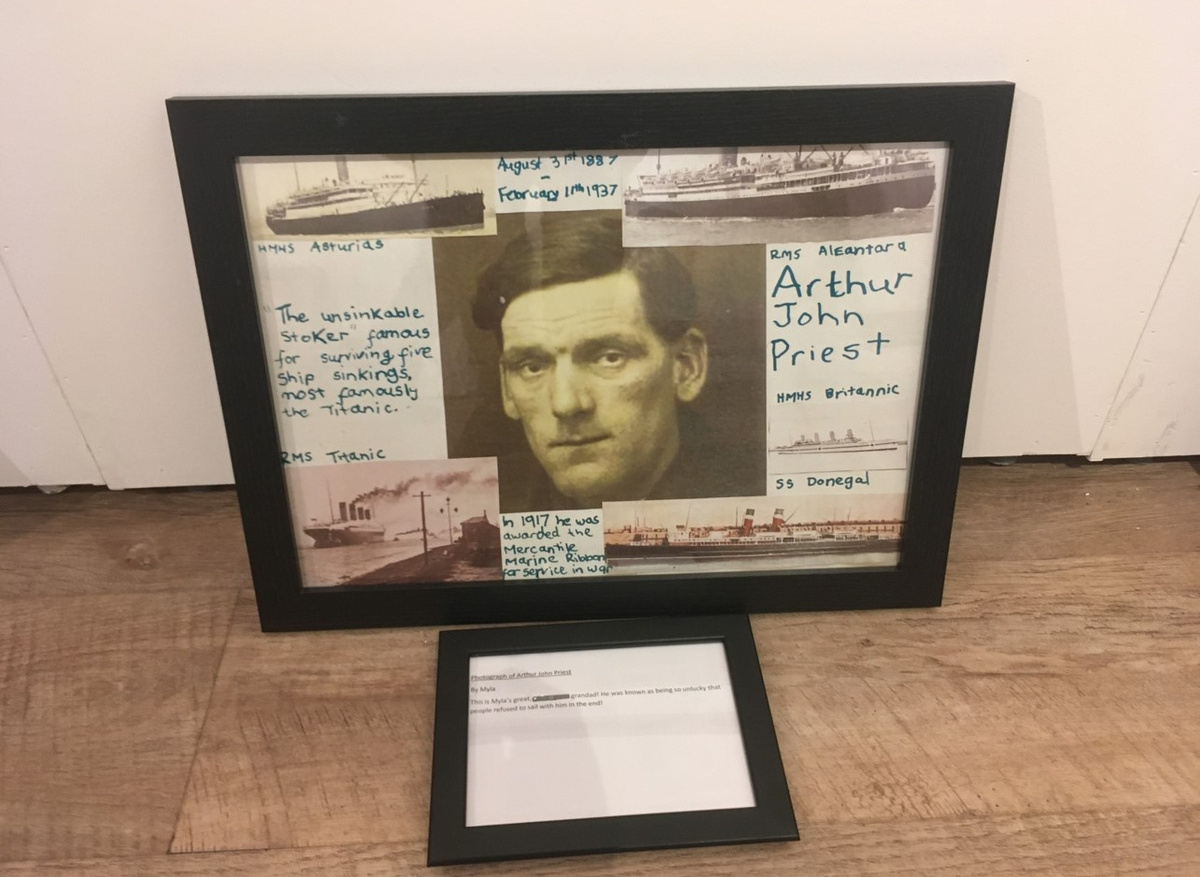
Part of the exhibition created by Rusty YAC on display at Weston Museum

Brighton creating their project film at the pet cemetery
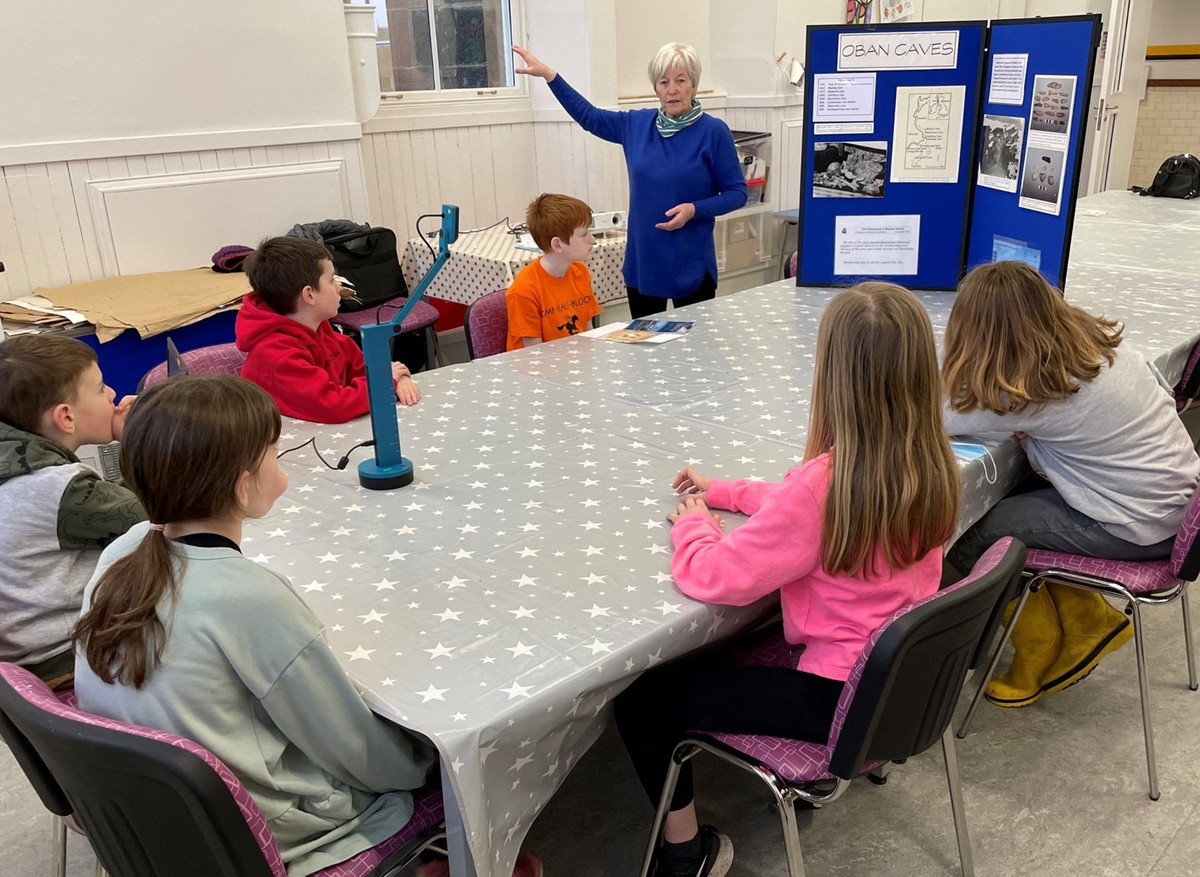
The Rockfield Centre YAC (Oban) prepping for their interviews
The Rockfield Centre YAC (Oban) prepping for their interviews
Below you will find overviews of all the projects created by our YAC groups and the main outputs from each group. You can also watch our project film, which celebrates each unique contribution from our groups.
You can also follow us by searching for #OrdinarytoExtraordinary on Twitter and Instagram.

What did the YAC groups create?
Project Film
 Brighton YAC
Brighton YAC
The Secret Life (and Death) of Pets
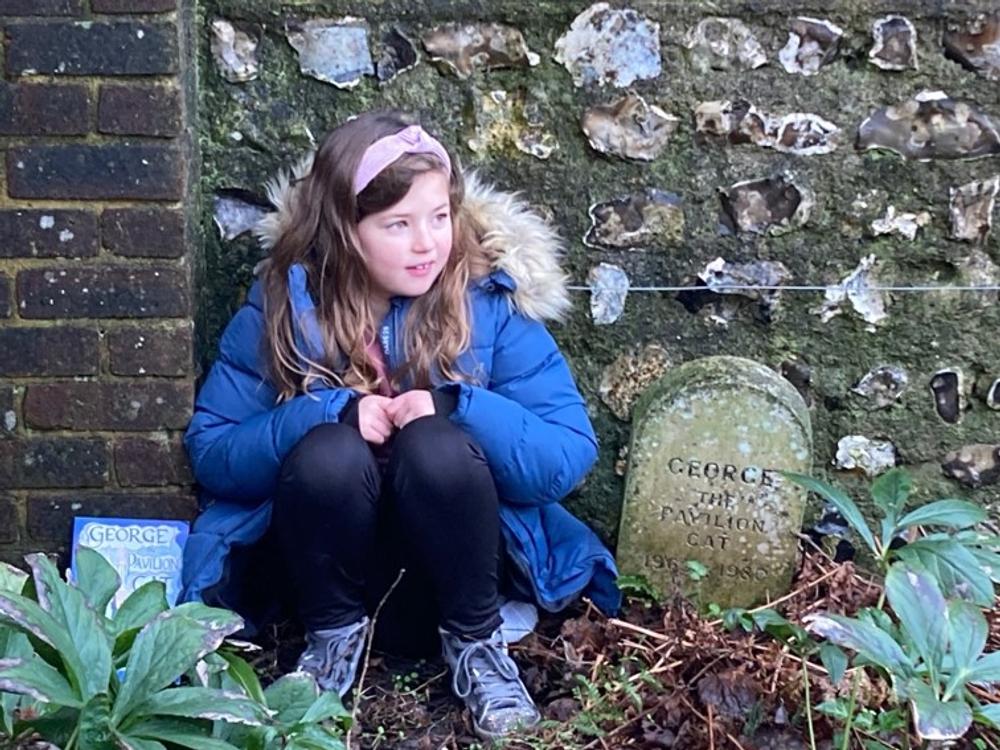
Brighton YAC investigated Preston Manor’s Late Victorian and Edwardian Pet Cemetery. Believed to be the only example in Sussex, this is the final resting place of 16 known dogs and 3 cats. Brighton members conducted their own graveyard study and consulted local archives to reveal the hidden story behind these beloved but often over-looked Brighton residents.
Follow them @BrightonYAC
Blog Posts:
Brighton YAC and their 'The Secret Life (and Death) of Pets' project
Brighton YAC 'The Secret Life of Pets project update
What was the main output from the project?
An interactive illustrated map of the cemetery. The map includes hand drawn maps and images as well as embedded videos.
You can download a copy here: Preston Manor Pet Cemetery Interactive Map

The embedded videos focus on individual pets from the cemetery presented by different YAC members, which you can access via QR codes. You can hear about their history, their owners and take a look at pictures and drawings of each pet.
Below you can watch George (wait for the comedy ending)!
What else did they create?
Extra content produced included: sound recordings; photographs; graveyard studies; 3 Preston Manor plans at different scales; maps; pet portraits; archive notes on pets; 7 videos narrating the lives of 7 different pets and a video documenting the project whole.
See more of what they created in their final project blog here.
 Chiltern YAC
Chiltern YAC
Following the threads: pinning down child workers in the Chiltern lace making industry
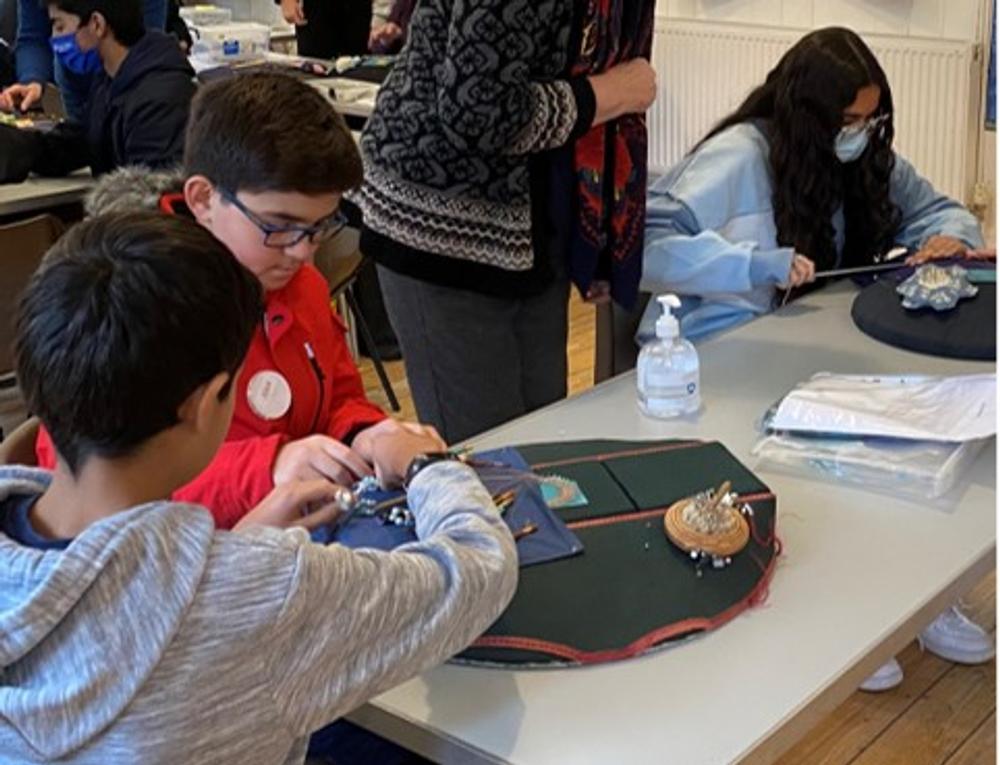
Chiltern YAC investigated part of the forgotten local heritage of Buckinghamshire, the area where their group is based.
The Chilterns was one of the major areas for the bobbin lace making industry until overtaken by mechanisation in late Victorian times. Chiltern YAC made a film to show how young children working in the lace making industry lived and worked in the Chiltern villages during the mid-Nineteenth Century. They considered; their age; why did they have to work; their working conditions and pay; their living conditions and what happened when machine made lace took over.
Blog Posts:
Chiltern YAC and their 'Following the Threads' project
Chiltern YAC and their 'Following the Threads Project Update
What was the main output from the project?
The main output for the project was the project film that features the research of the YAC members, interviews with experts and the YAC members themselves, plus footage of lace-making in action.
The project film was produced, recorded, directed and edited by the groups two young leaders, Aaron and Rosie.
You can watch the full film below:
What else did they create?
 Alongside the main video one of the younger members, with a little help from one of their branch leaders, created the new Chiltern YAC logo. We think it looks fantastic!
Alongside the main video one of the younger members, with a little help from one of their branch leaders, created the new Chiltern YAC logo. We think it looks fantastic!
 Colchester YAC
Colchester YAC
Caught in a Tudor Web
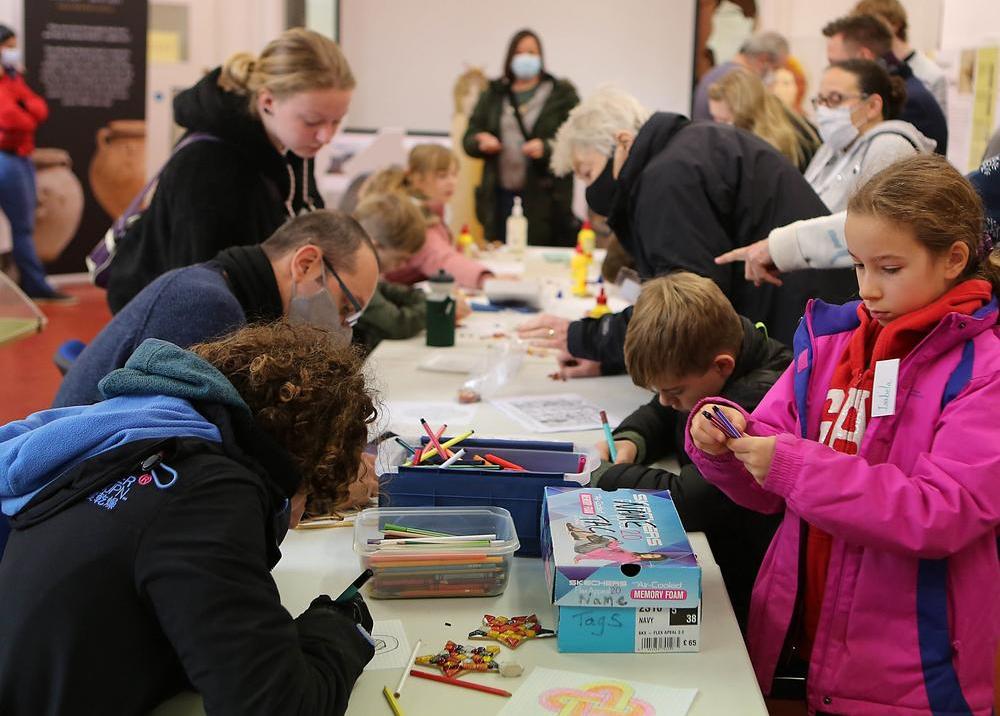
Colchester YAC set out to create a Martyrs’ Trail, which commemorates the Protestants from Colchester who died for their faith in the sixteenth century and show that prejudices and divisions in our town are in the past. More than four hundred years ago there was such religious conflict in England that cloth workers and farm labourers were martyred, for their protestant faith, in the castle bailey and at the town walls. Today a Mosque, Synagogue, Anglican, Methodist, Baptist, Buddhist, Greek Orthodox and Catholic places of worship are all within a short walk of the sites of martyrdom.
Colchester YAC members worked together to research the history of protestant martyrs in their area. They undertook site visits, map regression work, hsitorical document and research and they also created their very own project logo.
Follow them @ColchesterYAC
Blog Posts:
Colchester YAC and their 'Caught in a Treacherous Tudor Web' project
Colchester YAC and their 'Caught in a Treacherous Tudor Web' Project Update
What was the main output from the project?
The group created their very heritage trail around Colchester and the wider county. This was created in both a poster version and as a printed information flyer that is now available locally.


What else did they create?
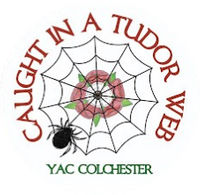
Alongside the main trail map and their project logo, members wrote and acted out there own version of the events surrounding the deaths of the martyrs while they were at Colchester Castle. YAC Leader, Barbara, has also been blogging the project here: Project Blog Posts
Barbara also recorded an article for the May edition of the “Talking Magazine” for the blind and partially sighted in north Essex, which focuses on the young archaeologists’ club project. It is about 34 minutes in to the recorded magazine here: Talking Magazine Article Recording
Future Plans
The group have plans to turn their research into a project film in the near future. They are also hoping to organise tours based on their trail for the local community.
Finally, on July 30th they we will having an exhibition of the pictures, artworks, posters and links to their project. They have more than 30 hopeful members wishing to join the club and they will be inviting all these to this event and include our 40 present members.
 Devon Torbay YAC
Devon Torbay YAC
Torquay at War: Uncovering forgotten stories from Torquay during the Second World War
![2[1] (1).png](https://www.archaeologyuk.org/static/0a458a22-78d6-4def-9213b8446dd39565/1000x562_highestperformance__4a7c7e45a350/21-1.png)
The Devon Torbay YAC members set out to work with their leaders and a film maker from Emberlense Productions to discover stories of the second world war, which were uncovered through physical evidence seen around the harbour and seafront areas of Torquay, such as memorials, the D-day slipway, bullet holes in walls etc. Using this and Torquay Museum’s collections, plus historical research, the YAC members decided to make two new documentary films. Members decided on the format and style of the films through a process of co-creation and these have been disseminated through Torquay Museum’s social media.
Follow them @TorquayMuseum
Blog Post: Devon & Torbay YAC and their 'Torquay at War' project
What was the main output from the project?
Documentary Film 1: The Bombing of St Marychurch
This film explores the bombing of St Marychurch, which killed 21 children and 3 teachers. The film tells the story of the tragic events of the 30th of May 1943. Incorporated in the film are photos, newspaper articles from the time, an original model of the church used to raise money for the rebuilding of the church and voiceover excerpts read from the diary of young child who tragically lost his life in the bombing.
Documentary Film 2: Air Raid Wardens of World War 2
This film explores the role of Air wardens in WW2. For the pre-production of the film the Young Archaeologists visited the Brixham Battery and learnt about its function and what life was like during the War. From this visit, they wrote a script about the function of an Air Warden and questions about the many items that Air Wardens used. They then interviewed Anthony Job who does Air Warden re-enactment for the Brixham Battery.
 Mersey and Dee YAC
Mersey and Dee YAC
The Archaeology of Slavery and Liverpool
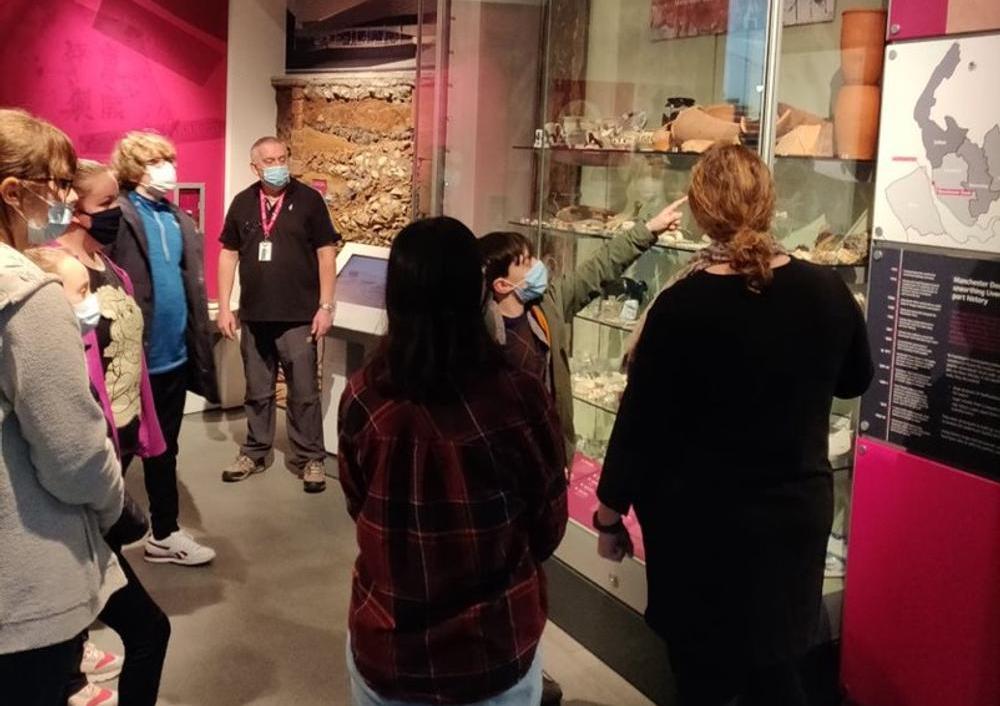
The Mersey and Dee YAC branch decided to explore the archaeology of slavery and its links to Liverpool. They divided their project across three sessions: to learn about the legacy of the international trade in enslaved African people in their landscape, how to do research to find out more and what the finds could tell us, and setting out their display.
You can read more about that in the first blog post below.
Follow them @NML_Muse
Blog Posts:
Mersey and Dee YAC and their 'The Archaeology of Slavery and Liverpool' project
Mersey and Dee YAC and their 'The Archaeology of Slavery and Liverpool' Project Update
What was the main output from the project?
The main output from the project was the curation of a co-created museum exhibition at the Museum of Liverpool based on the topic of the TransAtlantic slavetrade in Liverpool.
Below you can see the panel they created, the museum display and the installation underway.

 The Rockfield Centre YAC (Oban)
The Rockfield Centre YAC (Oban)
Monopoly - The Oban Edition!

**The Rockfield Centre YAC **of Oban set out to explore important places and spaces in Oban. The YAC members wished to record a variety of locations through expert knowledge, oral histories and recordings with their new camera, purchased with funding from the FOTE project.
Follow them @RockfieldCentre
Blog posts:
The Rockfield Centre YAC (Oban) and their 'Monopoly: Oban Edition!' project
The Rockfield Centre YAC (OBAN) and their 'Monopoloy: Oban Edition! Project Update
What was the main output from the project?
YAC members became particulary interested in a local cave system that was no longer accessible and decided to explore this further. Members interviewed a local expert about the caves and created their very own podcast. You can listen to the podcast here:
They also undertook a guided tour of Oban, inviting their friends and family along too. During the walking tour members chose places to stop and take 360 pictures. All the pictures taken from the day and the 360 photos now have their own page on the Rockfield Centre website showcasing the groups involvement with FOTE project. You can see a selection of the photos below:
You can visit their project page here: Rockfield Centre FOTE Project Page and if you are lucky enough to be in Oban you can visit their display in the entrance to the centre.
 Rusty Club YAC (Weston-super-Mare)
Rusty Club YAC (Weston-super-Mare)
Hidden Histories
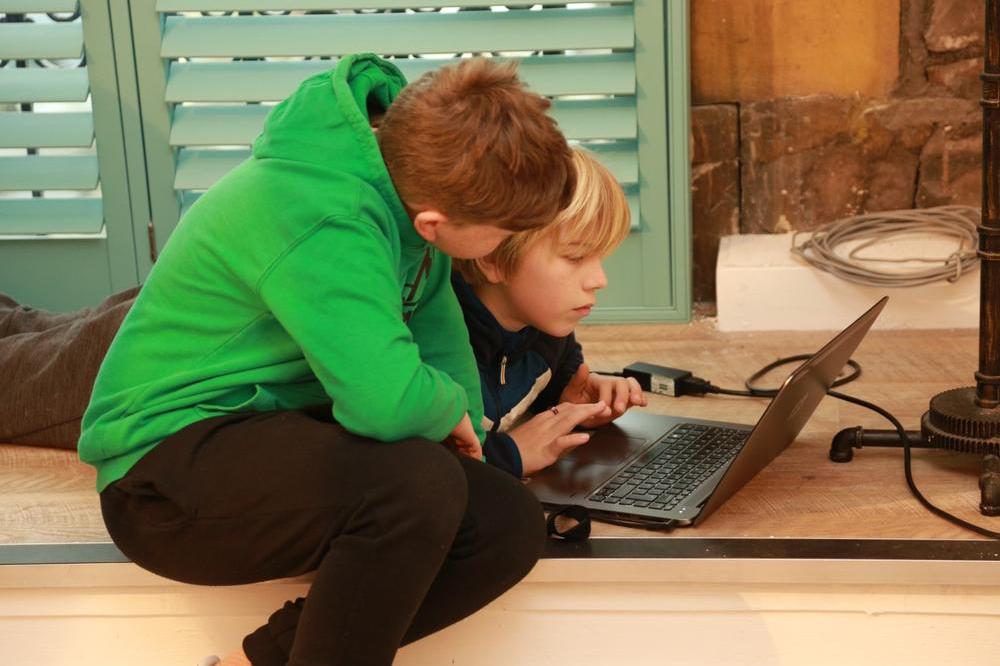
Rusty Club YAC explored the theme of ‘Hidden Histories’ by thinking about different historical sites across the country that either aren’t easily accessible or are not immediately visible, such as cave systems, underground passages, hidden rooms and cathedral ceilings. They also explored some mystery objects and investigated the changing past uses of the museum building itself. The club members also explored how exhibitions are made with the aim of co-creating their own exhibition at Weston Museum.
Follow them @Westonmuseum
Blog post: Rusty Club YAC and their 'Hidden Histories' project
What was the main output from the project?
Club members worked together to research, curate and mount their own exhibition, which opened to the public in February 2022. Each member chose their own bit of history to showcase and then wrote about why it was important to them.
We also wanted this text to be accessible to a wider audience so we had it translated. In Weston-super-Mare we have a large population of Polish speaking families and we wanted to encourage them to visit the exhibition too. We used part of our grant to have all the text in the exhibition translated in Polish and have this translation freely available in print form upon viewing the exhibition.
Take a look at the exhibtion below:


 Worcestershire YAC
Worcestershire YAC
Childhood Tales

Worcestershire YAC set out to explore the theme of childhood in the historical and archaeological record. The group began by undertaking site visits and group research to identify areas that interested them.
YAC members then developed their own research strands, some exploring topics such as toys and games, others pursued an oral history approach interviewing their family and neighbours about their experiences in WW2 for example.
Follow them @WorcsYAC
Blog Posts:
Worcestershire YAC and their 'Childhood Tales' project
Worcestershire YAC and their 'Childhood Tales' Project Update
What was the main output from the project?
Worcestershire YAC brought all their research together and presented them as a series of online blogs that they shared via their own social media channels.


You can read each of them by clicking the links below:
We have also created a short taster video below: